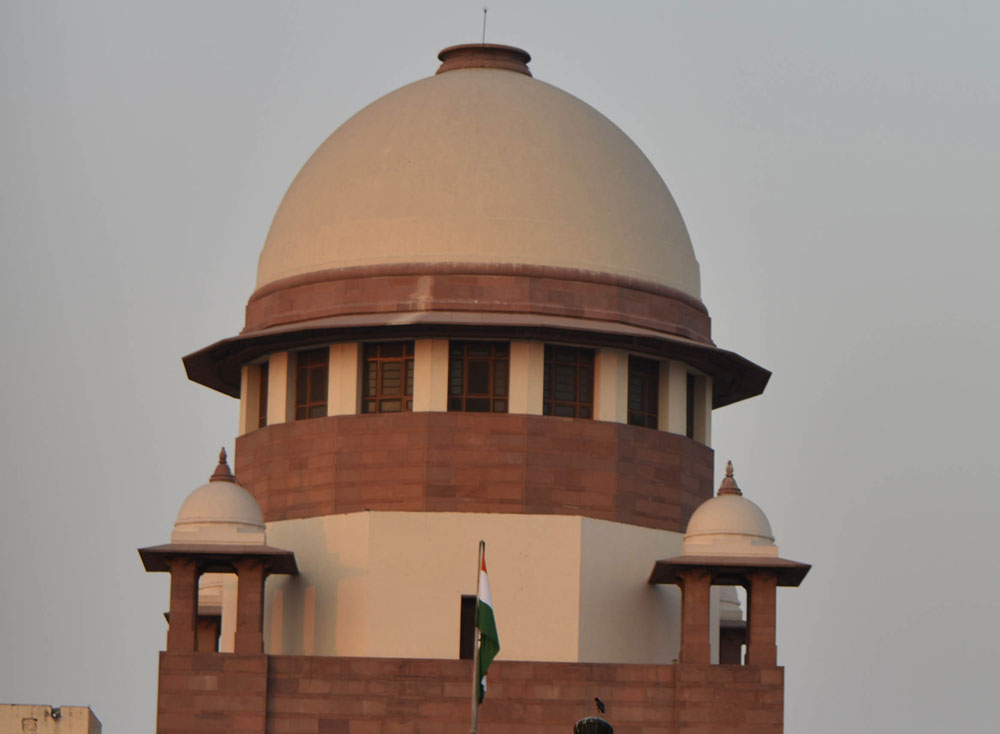The Supreme Court on Monday directed all the high courts and trial courts to conduct judicial proceedings as far as possible through videoconferencing for the next four weeks to ensure social distancing.
Only the apex court and some of the high courts are currently conducting proceedings through videoconferencing, but the facility has now been extended to all the trial courts.
“Every individual and institution is expected to cooperate in the implementation
of measures designed to reduce the transmission of the virus. The scaling down of conventional operations within the precincts of courts is a measure in that direction,” the bench of Chief Justice S.A. Bobde and Justices D.Y. Chandrachud and L. Nageswara Rao said.
“It is necessary to ensure compliance with social-distancing guidelines.... Court hearings in congregation must necessarily become an exception during this period.... This is not a matter of discretion but of duty.”
The bench issued several directions:
⚫ All measures adopted by the courts to reduce the need for the stakeholders’ physical presence and to secure the functioning of courts in consonance with the social-distancing guidelines and the best public health practices will be deemed lawful.
⚫ Courts must maintain a helpline to ensure that any complaint about the quality or audibility of the videoconferencing feed is communicated during the proceedings or immediately afterwards. No grievance will be entertained thereafter.
⚫ Courts shall notify and make available videoconferencing facilities to litigants who lack access to the technology or cannot afford it. If necessary, courts may appoint an amicus curiae (friend of the court) and make videoconferencing facilities available to advocates who lack access to them.
⚫ Until the high courts frame appropriate rules, videoconferencing will be used mainly to hear arguments at the trial stage or appellate stage. In no case shall evidence be recorded via videoconferencing without the consent of both parties.
⚫ If it becomes necessary to record evidence in a courtroom, the presiding officer shall ensure that appropriate distance is maintained between any two individuals in the courtroom.
⚫ The presiding officer will have the power to restrict entry into the courtroom. No presiding officer shall prevent the entry of a party to the case unless the party is suffering from an infectious illness.
⚫ If the number of litigants is large, however, the presiding officer will have the power to restrict the numbers, or adjourn proceedings where it’s not possible to restrict the numbers.

